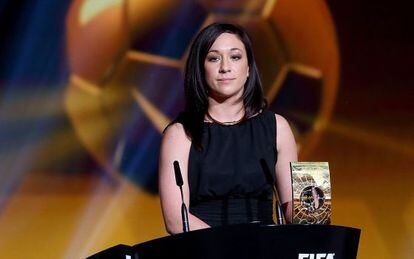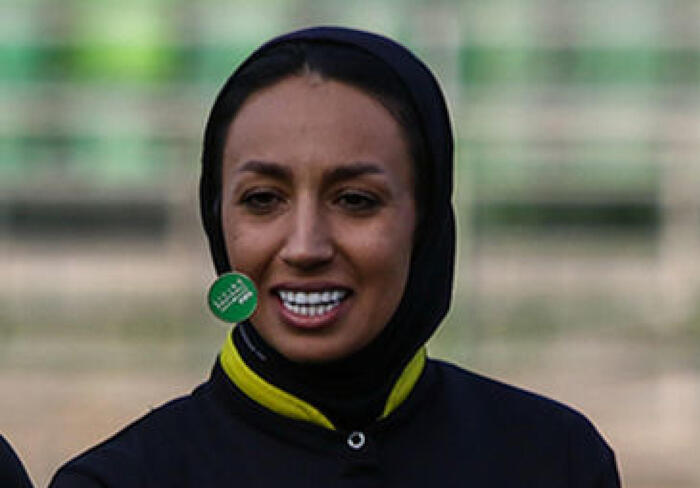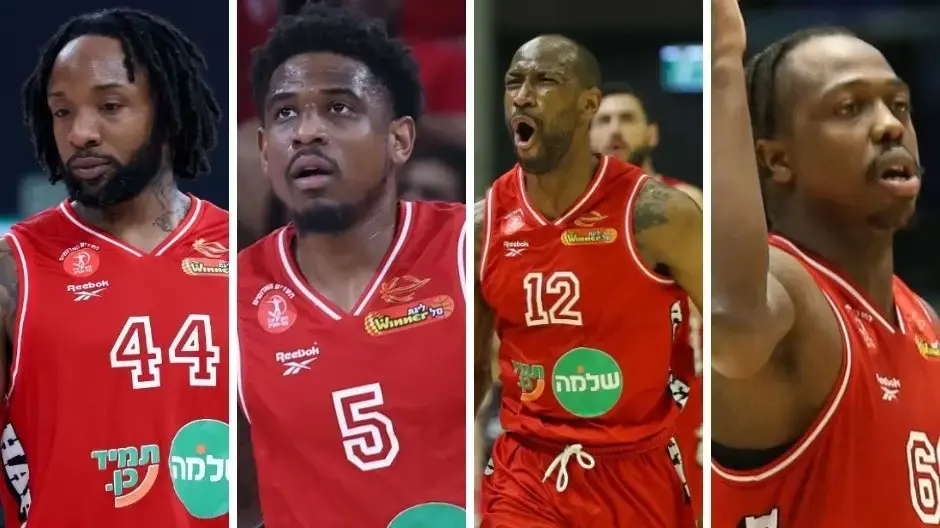Nadine Kessler (Landstuhl, Germany, 34 years old) was called to dominate football.
She did it on the pitch, in 2014 she won the Ballon d'Or after winning the Champions League and the Bundesliga with Wolfsburg;
she now she also does it in the offices.
After not overcoming an injury to her right knee, Kessler retired at the age of 28 and jumped into UEFA, first as an ambassador and then as head of women's football.
Ask.
What has changed in women's football?
Response.
Different types of organizations and institutions, such as clubs, UEFA, FIFA, the media and sponsors have started to put effort into the women's game.
This has generated a visibility that she had never had.
And she can be seen in events like the last World Cup or in this European Championship.
Also before there were only a handful of countries that gave it hype.
Now they are more.
P.
Have the fans begun to like it?
R.
_
Now people like to watch women's football.
The level of the game and the standards surrounding it are unmatched when I was playing.
P.
What was it like in your time?
R.
The most attention was paid to the Euro and the World Cup.
There was nothing big to talk about.
Now it has become a regular topic in society.
People are interested in the feminine.
Today, for girls, it is as natural to play it as it is to simply follow it.
Q.
After the success of the number of people in the stadiums in the last Champions League, especially with the two attendance records at the Camp Nou, is a closed women's league viable to generate more fans?
R.
_
I think exactly the opposite.
A closed league does not make sense for the masculine and neither does it for the feminine.
Q.
Why?
A.
Because we don't have enough girls playing or enough clubs.
So we don't have a sustainable massive structure.
The last Champions League was the first in which we had a very tough competition in the quarter-finals with some really open games.
P.
What has to happen to continue growing?
A.
Increase the number of strong clubs.
I don't think it's interesting with only four or five competitive teams.
We have to focus our efforts on fostering stronger local leagues that will generate interesting matches.
The English league, for example, has shown that it is possible.
P.
Should the feminine copy the business model of the masculine?
A.
Commercially we have started at a completely different stage.
In fact, there are still European countries that have not yet started it.
It's only been four years since we've separated the commercial rights from the men's.
Now we sell it as women's football and we have other partners who work differently, with different ideas about the business.
The feminine is really important and you don't need to copy and paste the masculine model.
Obviously, there are things to learn from but we must have a different approach.
Nadine Kessler collects the award for best footballer of the year 2014.Alexander Hassenstein
Q.
Why is there such a difference in prize money for men and women?
R.
In this Euro the prize has doubled with respect to the previous one [it went from eight to 16 million].
And, to my knowledge, there is no other women's team sport in the world that has this many prizes except for the Women's World Cup.
However, the first thought is to compare it to the men's Euro.
Q.
And it doesn't seem normal to you?
R.
For us the question is: how can we make the whole of women's football grow?
Investments are needed at all levels of the game, from grassroots to elite football, in training and tournaments.
Promotion must grow and visibility must increase.
And, ultimately, the amount of prize money that will help build the women's game in a sustainable way also has to grow.
Q.
But will it increase?
A.
The awards are a mechanism used by UEFA to develop and professionalize women's football.
I am sure that, with the increase in marketing, there will soon be significant increases in prizes.
Q.
What do you expect from the Euro?
A.
A big and interesting tournament.
Both in the game and in the organization.
We had sold close to 400,000 tickets in May.
A week before the tournament started the figure was 500,000.
It had never happened.
Interest grows exponentially.
Q.
And at a football level?
R.
A very open Euro.
Among the first 16 teams everything is very even.
Now it's time to press so that the other selections raise the level.
Q.
How do you analyze the progress of the Spanish team?
R.
Spain is clear about what they play and has been consistent with their style in recent years.
That has allowed him to progress to the point of arriving with the ambition of winning this Euro.
This is what we want: open competition.
Q.
But is Germany still a favorite against Spain?
R.
No, it is difficult to predict what can happen between Germany and Spain.
And that, for example, is another of the things that has changed in women's football compared to the past.
You can follow EL PAÍS Deportes on
and
, or sign up here to receive
our weekly newsletter
.
50% off
Exclusive content for subscribers
read without limits
subscribe
I'm already a subscriber










/cloudfront-eu-central-1.images.arcpublishing.com/prisa/S7UVDTX7DREC7DXVCZN6MEKGBY.jpg)




